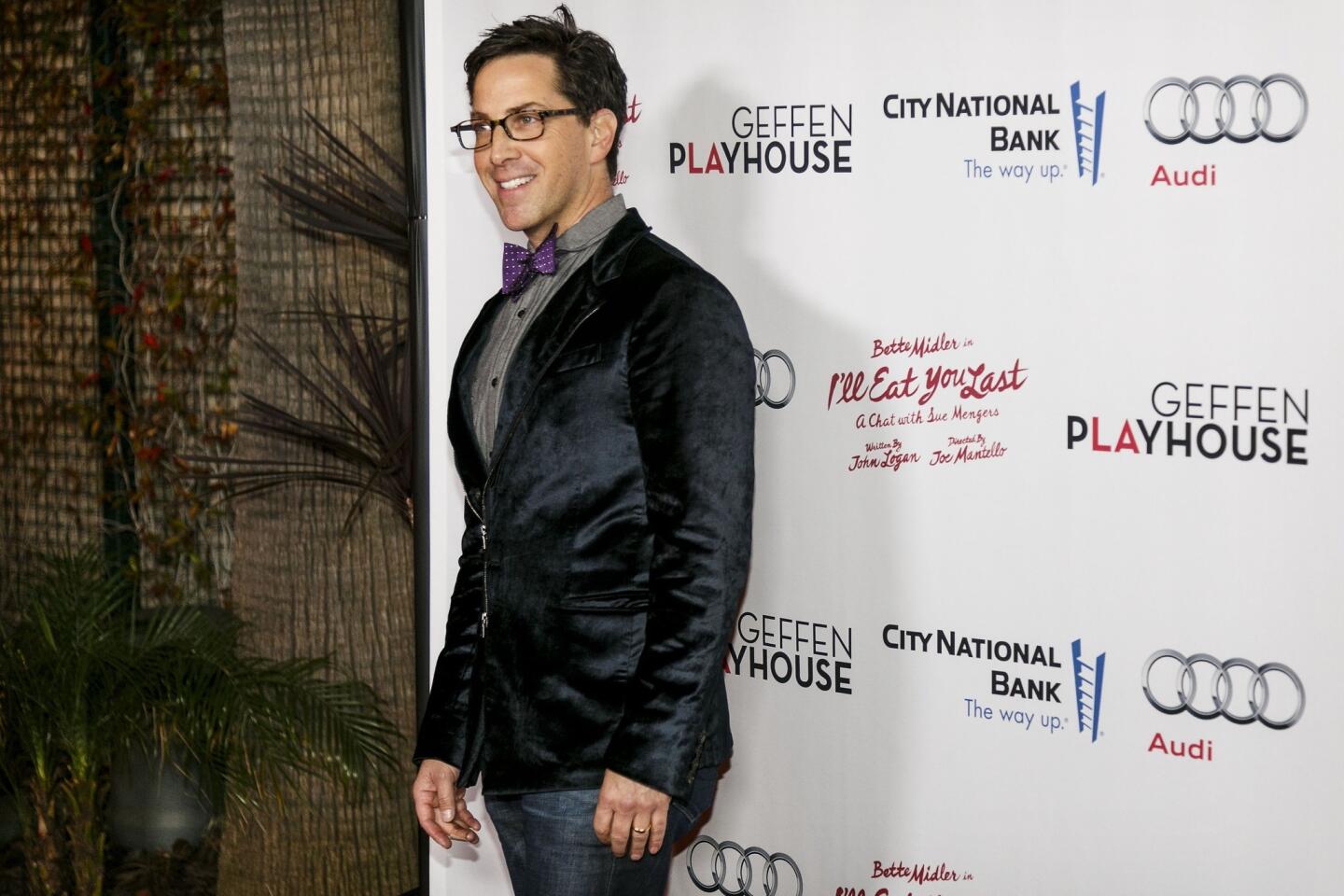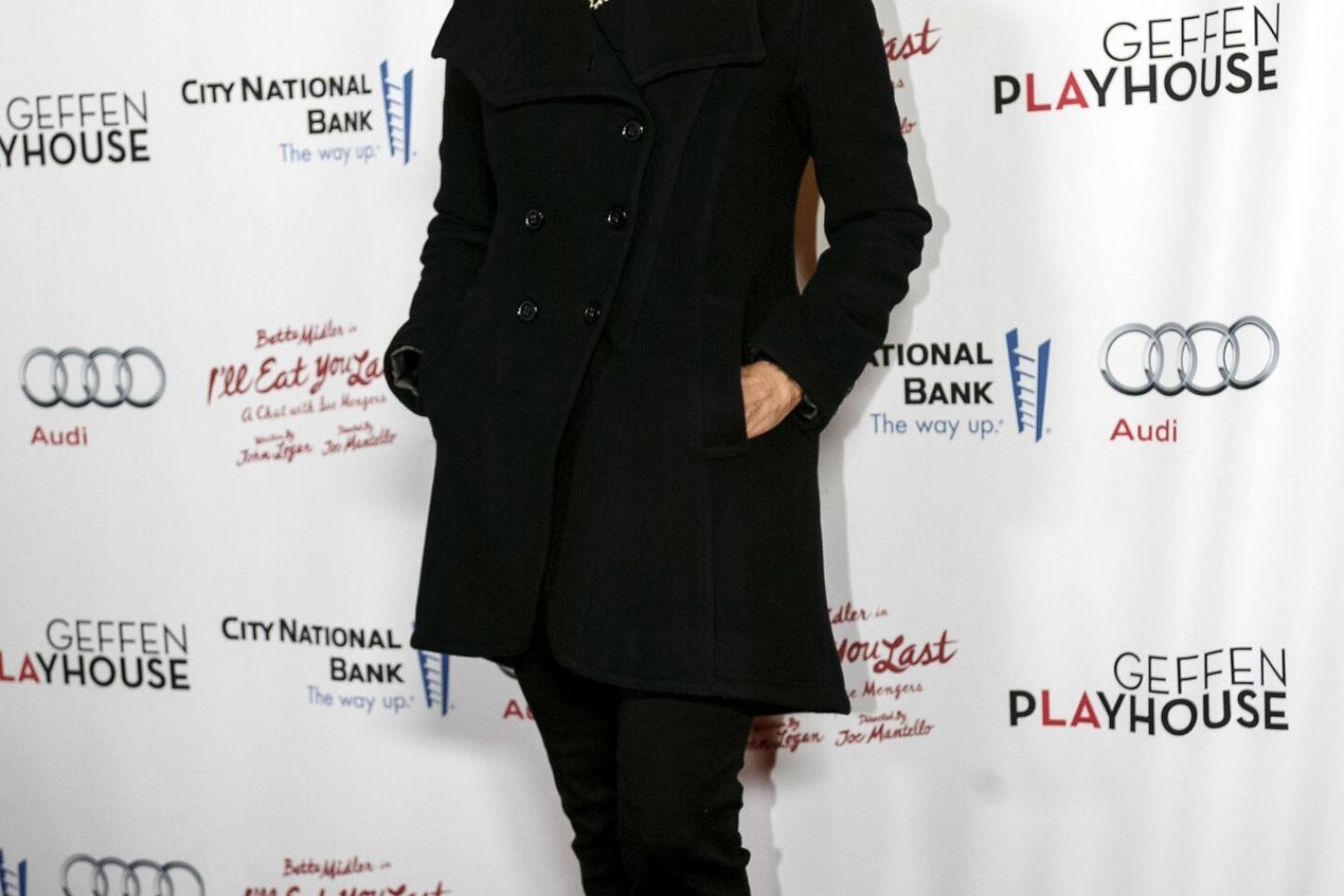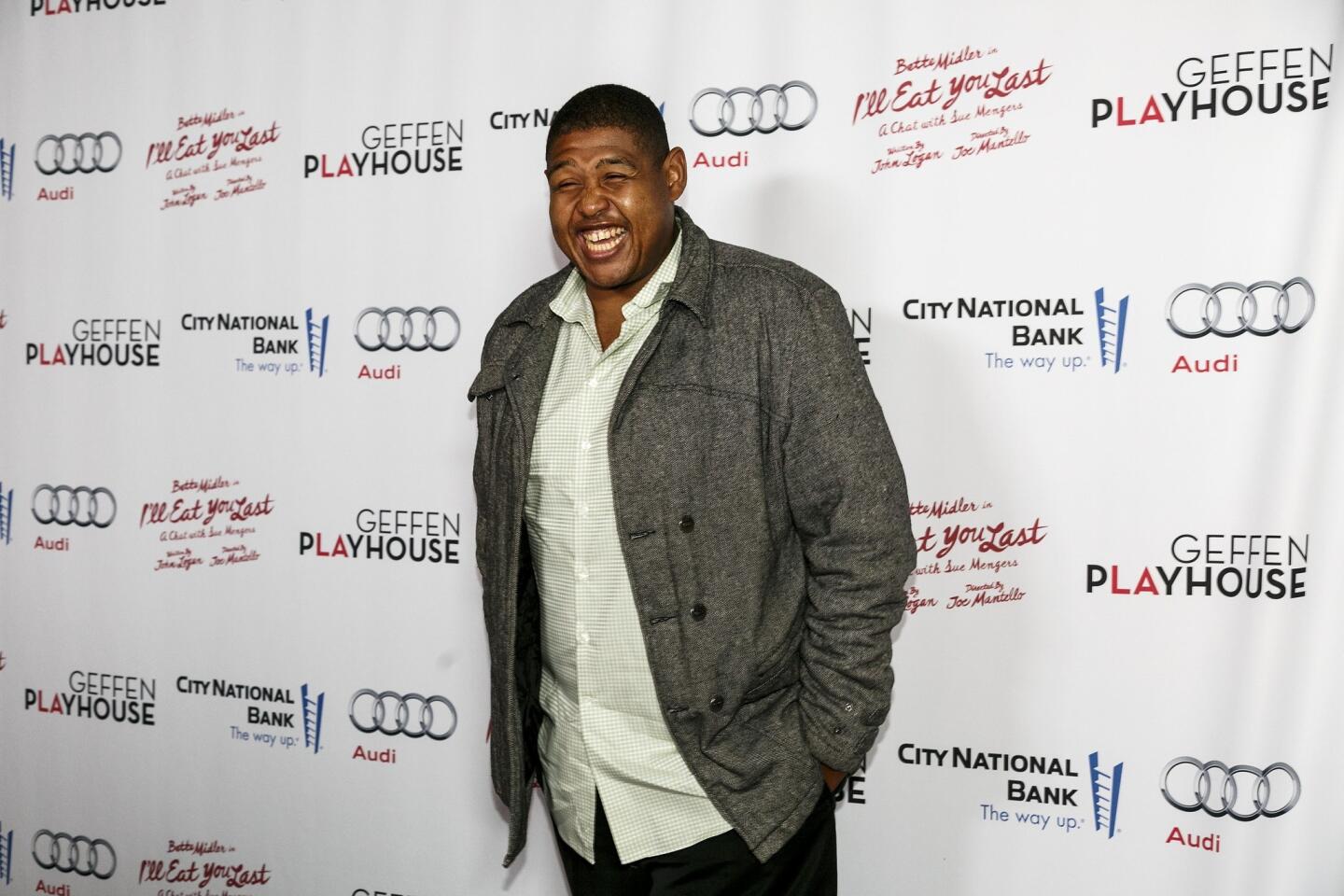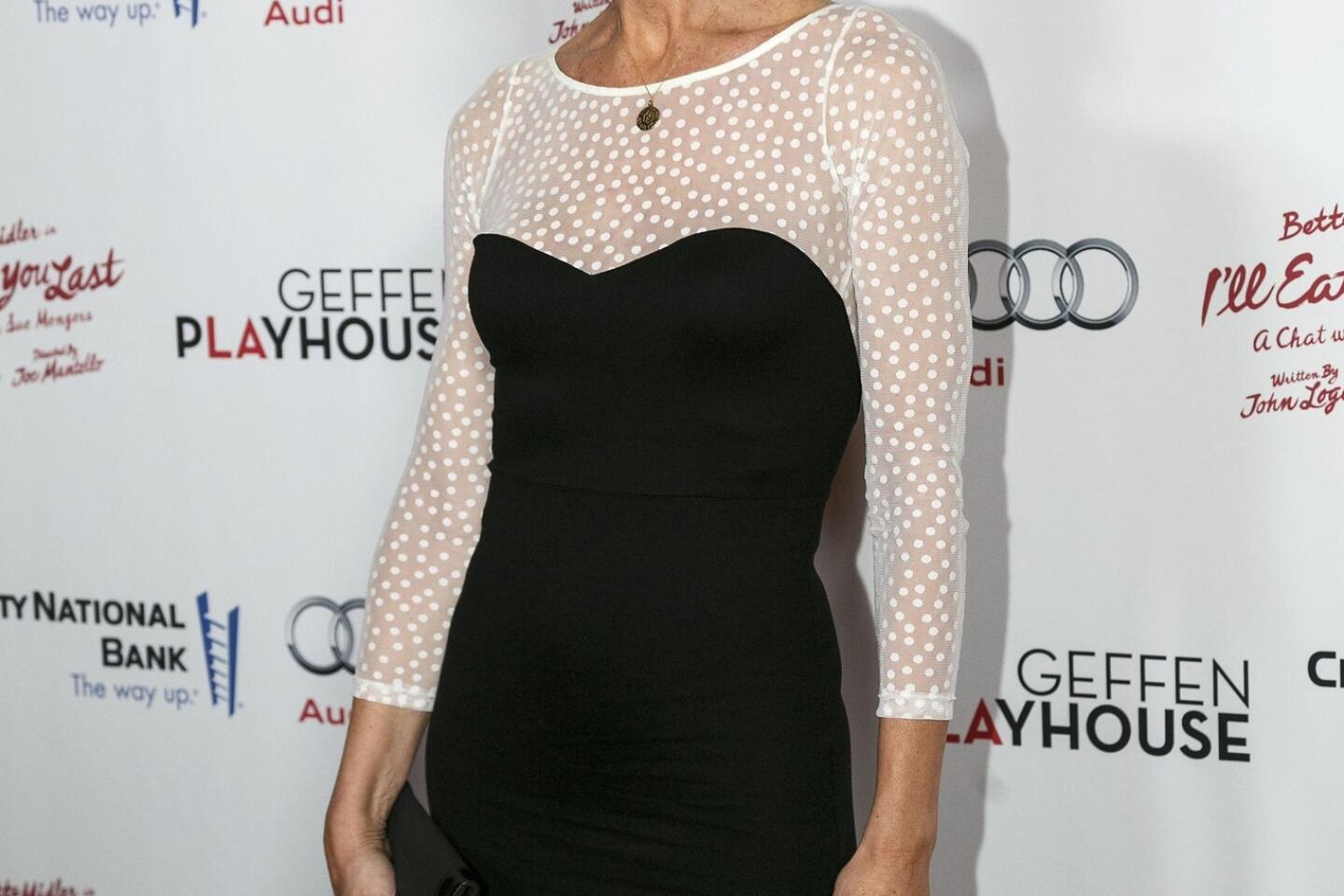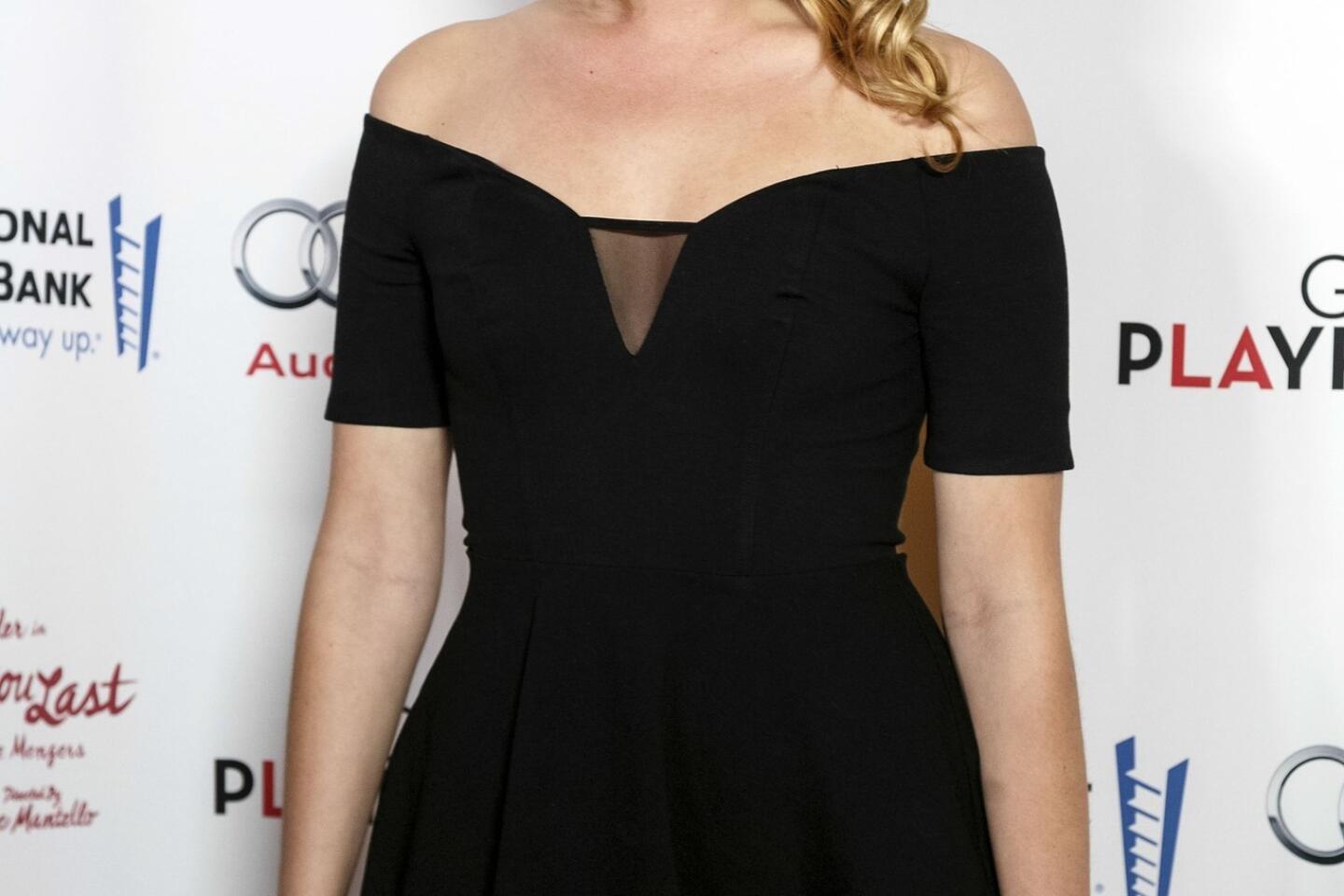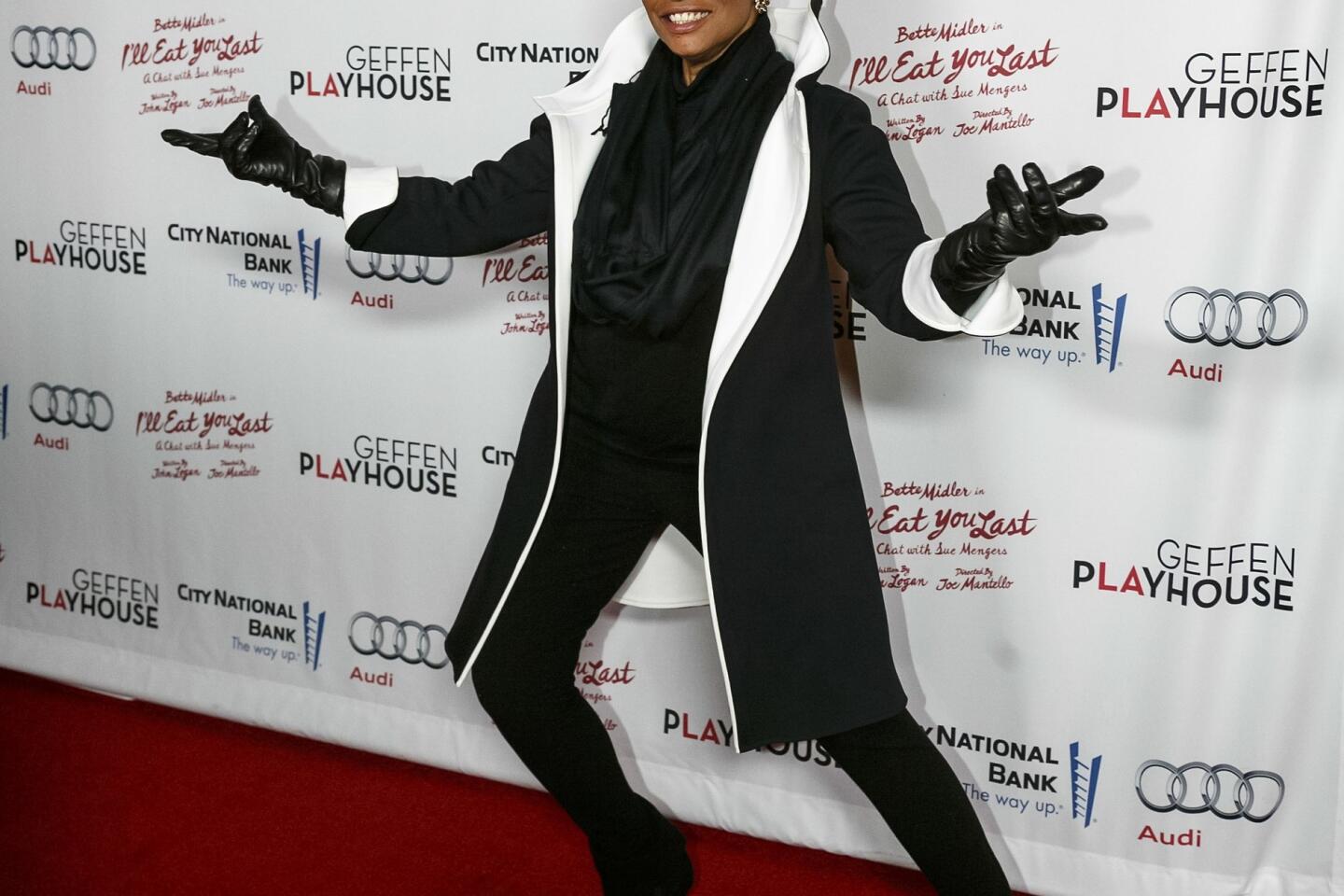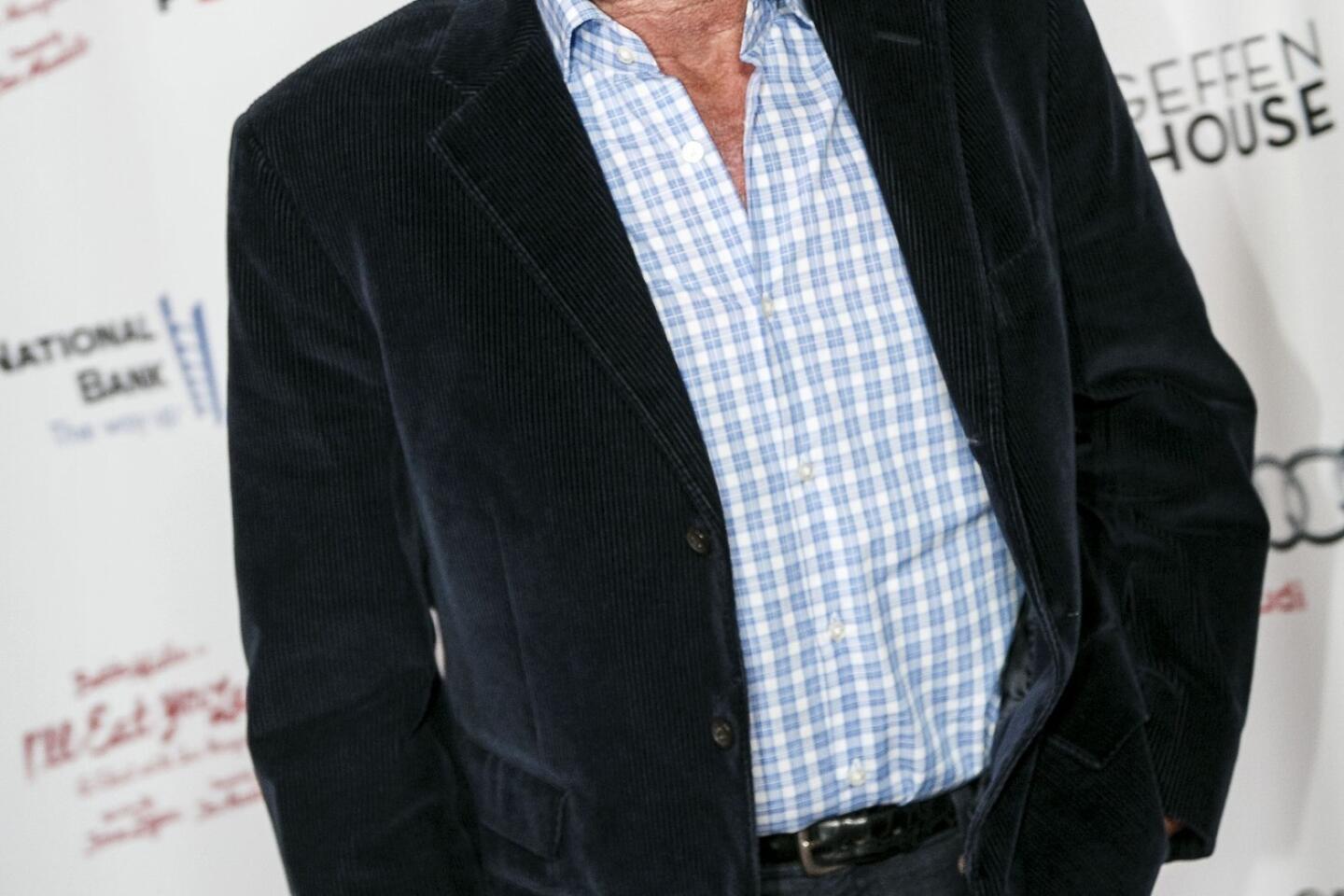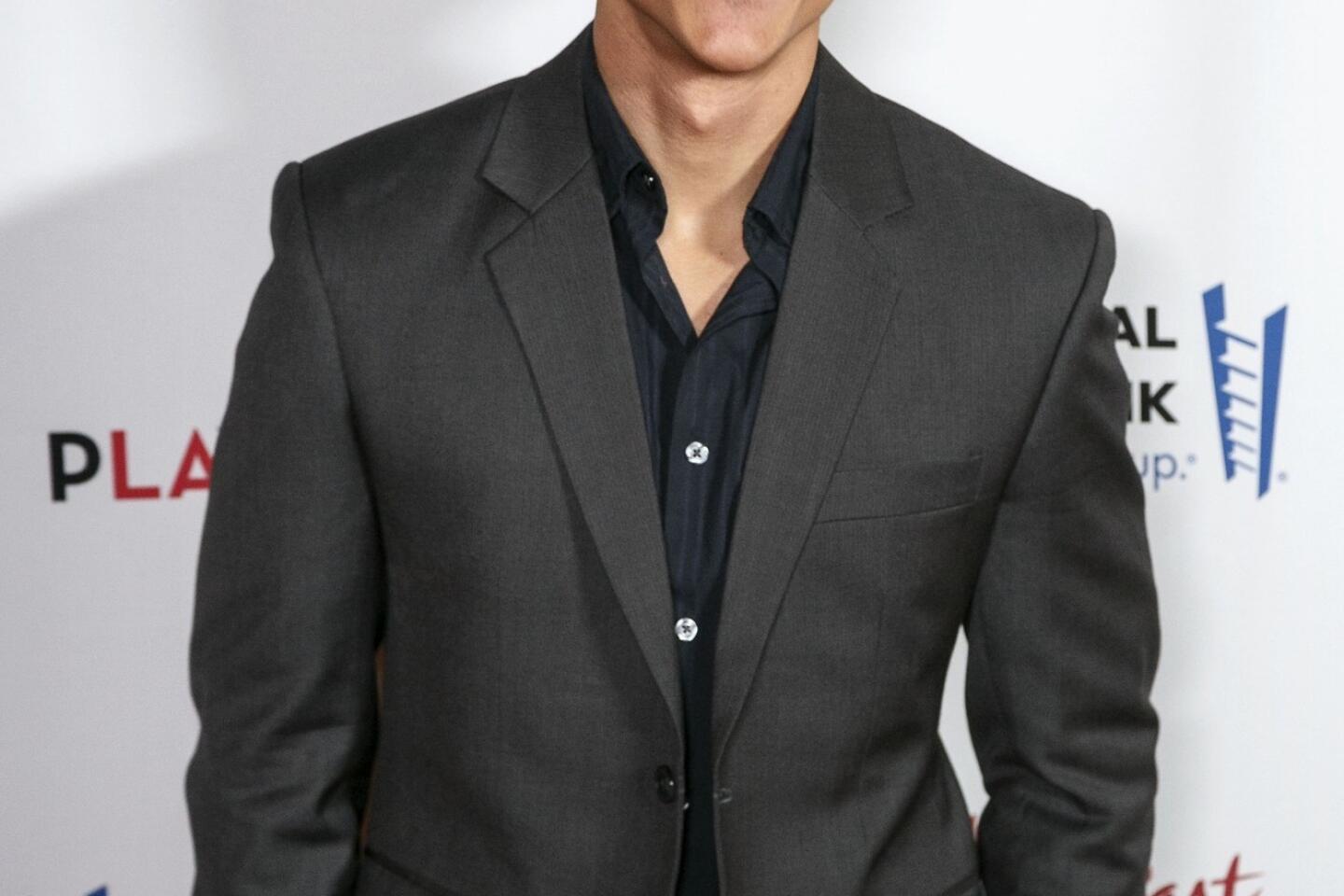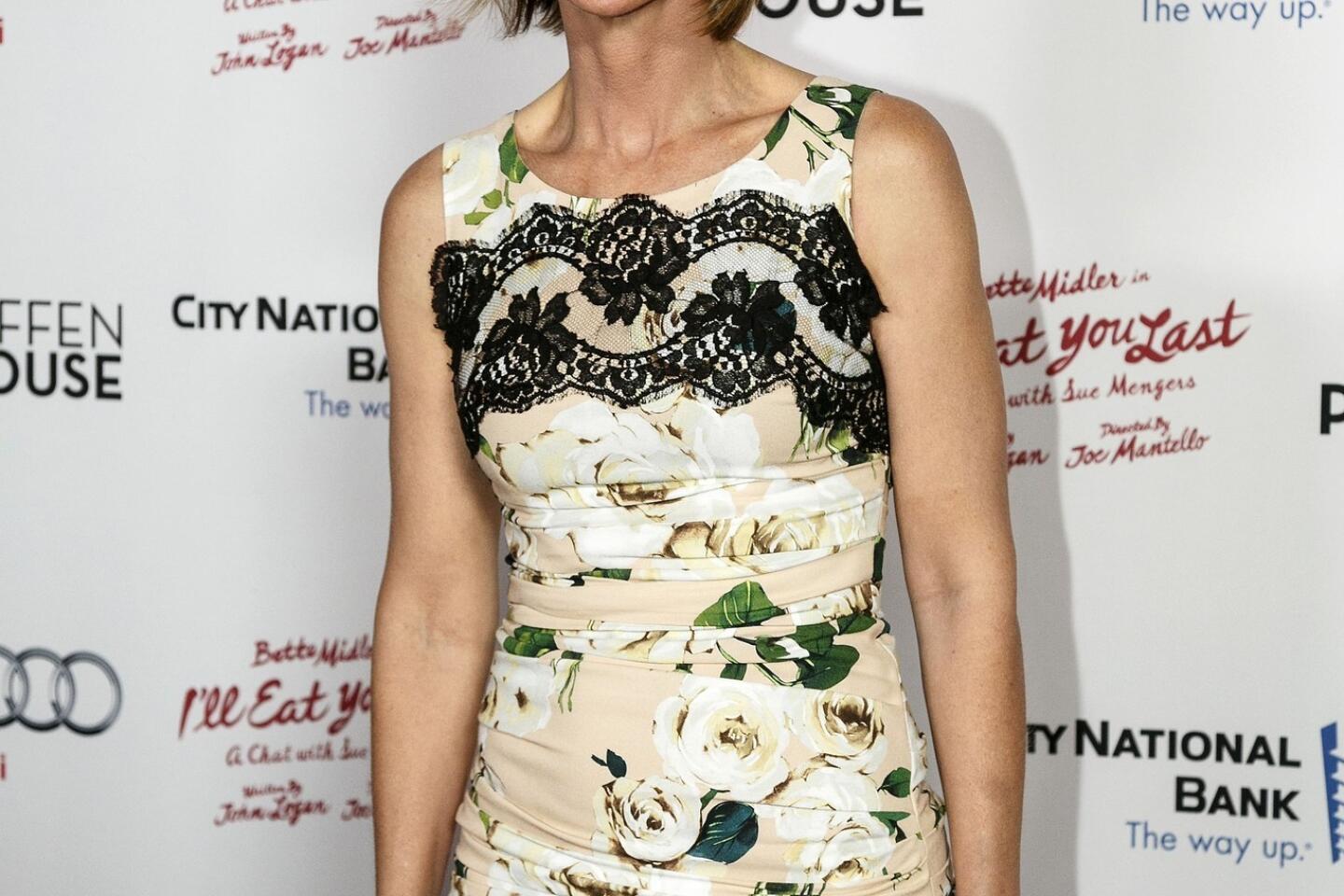Critic’s Notebook: Meeting ‘Sue Mengers,’ revisiting her Hollywood
I never had dinner at Sue Mengers’ house, and though I had a nodding acquaintance with her completely charming husband, director Jean-Claude Tramont, I never even met the woman in question.
But after seeing John Logan’s “I”ll Eat You Last: A Chat With Sue Mengers,” a bracing play about the woman who in her prime was viewed as the most powerful talent agent in the world, I wish I had. And, judging from the reaction on opening night at the Geffen Playhouse, a lot of other people shared that wish.
The audience at the Geffen that evening was chockablock with studio executives, agents, producers and even the occasional film star — I narrowly avoided physically colliding with Bruce Willis in the crowded lobby, and James Caan, Dustin Hoffman, Helen Hunt and Marisa Tomei were reportedly also in attendance.
The response from this insider crowd was, in a word, rapturous. There was a huge roar when Bette Midler, who splendidly handles the difficult challenge of what is essentially an 80-plus-minute monologue, first appeared on stage in a Mengersesque caftan and an even bigger one when the final curtain came down.
Part of this reaction is of course due to Midler’s engaging performance and Logan’s entertaining writing, which focuses on Mengers’ savage, profanity-laced tirades — calling Barbra Streisand’s “Yentl” “her cross-dressing Jew movie” is a mild example — as well as tasty gossip about the doings of Mengers’ celebrity clients including Gene Hackman, Faye Dunaway and Ali MacGraw.
But I kept feeling that there was something more going on than luxuriating in tales told out of school. What did the play say, either intentionally or not, about Hollywood then versus Hollywood now? What was different, what was the same and, perhaps most intriguing, what was both different and the same?
PHOTOS: Billion-dollar movie club
The biggest difference between 1981, when the play is set, and now, is phone technology. Mengers boasted of having a house phone that had three lines but the mobile phones of today can do everything but give notes on scripts, and that may be in the near future.
Still, one could almost hear a sigh of regret from the connection-obsessed audience when Mengers insists “some places should be safe from the phone.” Fat chance of that happening today.
Also different, inevitably, is the changed structure and relative power of specific talent agencies. William Morris is now William Morris Endeavor, International Creative Management is now ICM Partners, and though CAA is still powerful, Mengers’ personal nemesis, Mike Ovitz, is no longer the man in charge.
PHOTOS: Celebrities by The Times
What people talk about on their devices is a bit different now as well. One sentiment Mengers expresses — “Everything in this town is business” — is as true as it ever was. But her blast against talking about international affairs (“Is there anything more dreary than Cambodia?”) plays differently in a culture where having your own personal nonprofit determined to do good in the wider world has become a sine qua non for celebrities.
Also the same and different is the way that gossip, Mengers’ specialty, remains Job One for everyone involved in the business. What is different about that is the way the Internet has in a sense democratized gossip, with sites like Deadline Hollywood, the Wrap, TMZ and the reinvigorated Daily Variety and the Hollywood Reporter allowing everyone to eavesdrop on what was once privileged information. The choicest stuff still remains private, of course, but less so than in the past.
Perhaps the most interesting aspect of Hollywood that is both the same and different is the kind of people who come here and what they can do.
PHOTOS: Greatest box office flops
Anyone who’s read F. Scott Fitzgerald’s wonderful 1940 short stories involving a broken-down screenwriter named Pat Hobby knows that the cast of characters in this town never really changes, that the kind of people who feel, as Mengers did, that they were “made for this place” are always going to gravitate toward Hollywood.
Two things, however, have changed for these people. One is their sphere of influence. Hearing Mengers’ stories about getting Hackman into “The French Connection” and Dunaway into “Chinatown” reminds us yet again how infrequently these kinds of films are made today. It’s unlikely that stories about getting Chris Hemsworth into “Thor,” if they exist at all, have quite the same resonance.
Also different, and one of the themes of the play in fact, is that the soulless corporatization of the movie business has made working in a depersonalized Hollywood a whole lot less fun than it used to be. Playwright Logan, whose screen credits include “Skyfall” and “Hugo,” has considerable studio experience, and when he has Mengers say “I’ve seen the future, kids, and it’s not a lot of laughs,” it feels like he’s speaking from the heart.
More to Read
Only good movies
Get the Indie Focus newsletter, Mark Olsen's weekly guide to the world of cinema.
You may occasionally receive promotional content from the Los Angeles Times.
